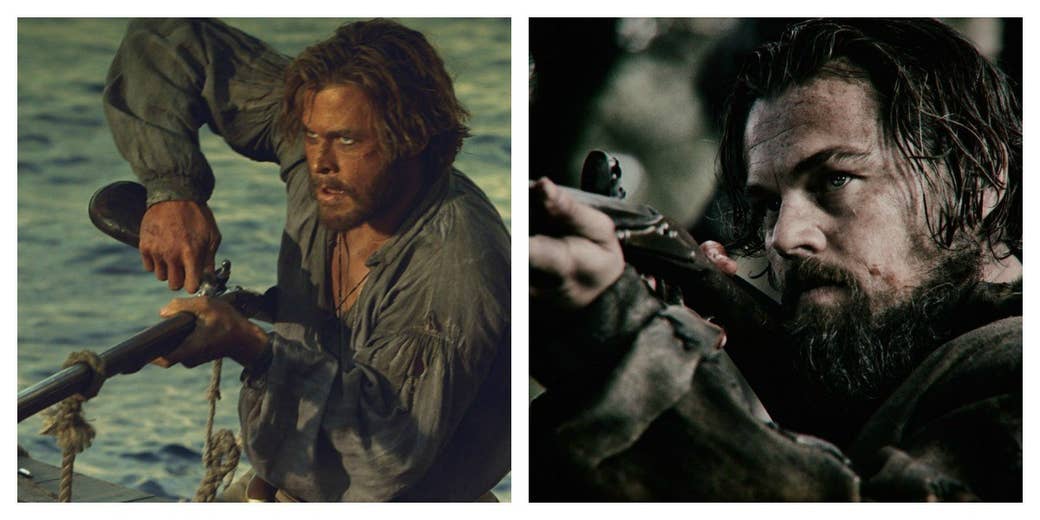
Owen Chase, a swashbuckling, sulky seaman played by Chris Hemsworth, has a rough day at work in In the Heart of the Sea. Actually, he has a whole bunch of them. To start, he gets stuck playing first mate under an inexperienced captain (Benjamin Walker) from a fancy Nantucket family on a voyage he was promised he'd get to lead. Then, their ship is forced to venture into unknown waters thousands of miles west of South America in search of the whales from which they aim to harvest oil. When the vessel, called the Essex, is attacked and sunk by a particularly large and ornery whale, the remaining sailors starve over months lost at sea, eventually resorting to cannibalism to survive.
Rough! But Chase's hardship pales in comparison to what Hugh Glass, a gruff frontiersman played by Leonardo DiCaprio, goes through in The Revenant. He's guiding a group of fur trappers through the Dakotas when their numbers are decimated by an Arikara war party, and then he gets attacked and energetically mauled by a protective mother bear out in the woods. He's stitched up and left to die, but instead, it's his kid who passes, knifed by the treacherous John Fitzgerald (Tom Hardy, even less intelligible than usual). Glass crawls his way out of a grave and back through the frigid terrain, eating raw meat and tucking himself inside animal corpses, Tauntaun-style, to keep warm, all in order to avenge his son's death.
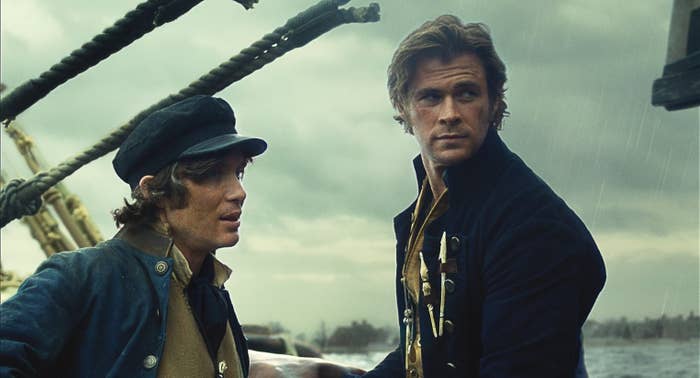
Why all this lavish hardship in the historical outdoors? Well, it is awards season, when misery is looked at fondly, and misery that takes place safely in the past is looked at with even more affection. In their respective movies, Hemsworth and DiCaprio don't just reenact these ordeals, they both put themselves through their own minor, actorly versions of deprivation in order to play these roles. Hemsworth braved a 500-calorie-a-day diet to pare himself down from Thor-sized to a (more lithe than gaunt, honestly) lost-at-sea size. DiCaprio grew a bushy (and, as was hilariously rumored by one tabloid, possibly flea-infested) beard and weathered a grueling, snowy shoot in Canada and Argentina that was supposed to take seven months but ended up spanning closer to a year. They lightly martyred themselves as proof of their dedication to the craft. DiCaprio, at least, will get another Oscar nomination out of it, and in a weak year for leading men, he could quite possibly win.
The more important question to ask is why anyone would want to watch these man vs. nature endurance trials, in which shapeless suffering is offered up as if it has inherent worth. The self-seriousness of these struggles is underscored by the fact that Chase and Glass were both real dudes — the Essex ordeal would provide fuel for Moby Dick, while Glass's life inspired the 2002 Michael Punke novel on which The Revenant is based. Actual men withstood these travails, these movies insist, and therefore they are worth witnessing, even if these men are treated like handsome but grimy hunks of meat desiccating in the South Pacific sun or shivering in a damp bear hide. There is little to them aside from their ability to stay alive even after being menaced by computer-generated beasties, a quality that can't even be spun as life-affirming given the grim context in both stories.
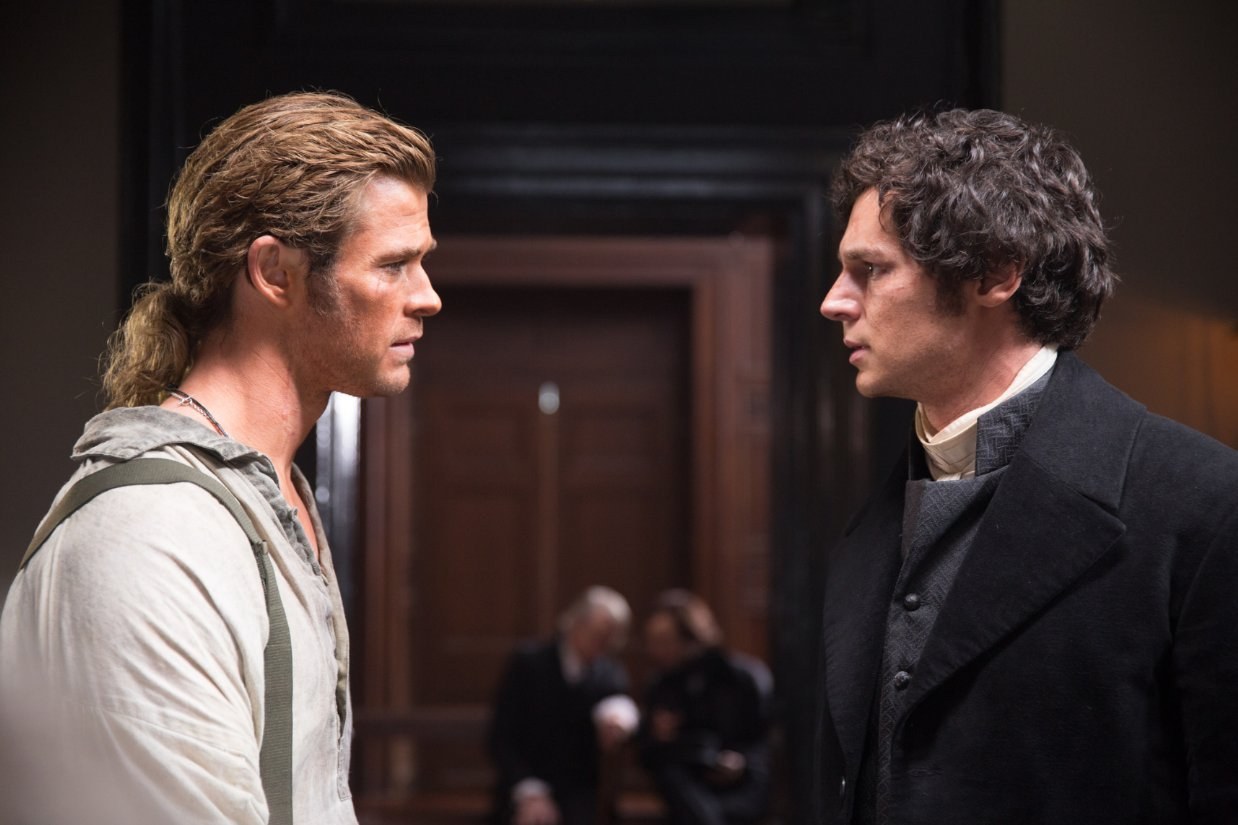
It's Hemsworth who gets the lamer deal with In the Heart of the Sea, which is directed unmemorably by Ron Howard. The Aussie actor remains better at playing golden gods than he is at scaling down. In Howard's last movie, the underseen, excellent racing rivals drama Rush, Hemsworth played James Hunt as a magnetic hedonist. The lazy, jungle cat of a man was capable of snapping to attention and totally confident in his skills on the track. In In the Heart of the Sea, the actor is splendid when swinging from the sail rigging or harpooning a whale for what the men euphemistically call a "Nantucket sleighride," as the wounded animal tries frantically to escape and ends up pulling the boat along with it. But the charisma dissipates when he's bickering with his captain or promising his pregnant wife (Charlotte Riley) he'll come home. Chase is a highly resistible working schmo, and his angst about being an outsider trying to break into Nantucket's closed society (he's dismissively labeled a "landsman") feels as abstract as his clashes with the company men by which he's employed. He's boring at rest, and that's what so much of the latter part of the film is filled with, waiting and enduring.
The vintage grotesquerie of the regular old whaling process turns out to be more disturbing than the dark adventures that are In the Heart of the Sea's reason for being — the details about stripping the carcass while sharks make the ocean boil, then sending the smallest crew member crawling into the head to get the really valuable oil. Once upon a time the world was illuminated by boiled whale — imagine that.
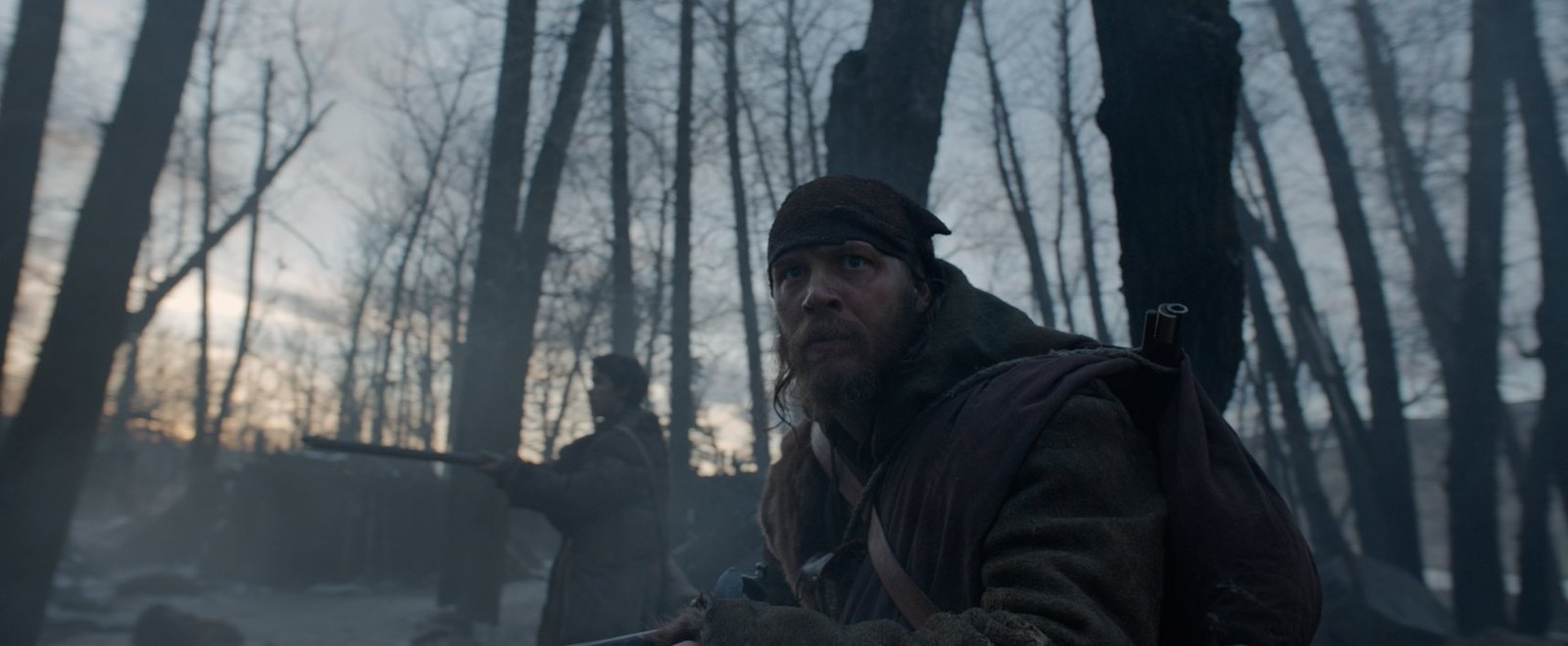
Or imagine pelts worth dying for, which is the case in the equally archaic industry in which the characters in The Revenant work. Glass and his crew risk their lives trapping in hostile territory, and when the Arikara attack them early in the film, it's to take their skins and sell them to the French. That battle is a sickeningly violent, wondrously photographed thing, the brilliant cinematographer Emmanuel Lubezki's camera lurching from one character to another as men are shot or scalped or flee from the melee, while also taking the time to look up to where the trees and sky remain impassive to the deaths below. It's a sequence that's as gorgeous as it is terrible.
The Revenant, which is directed by Birdman's Alejandro González Iñárritu, is without question a brawny display of filmic beauty that leaves In the Heart of the Sea in the doldroms, its unforgiving wilderness shot in stunning, unwelcoming natural light. But beneath that, it's a whole lot of sub-Hemingway, tough-guy posturing: Another white hero who's more native than the natives lectures his half-Pawnee son (Forrest Goodluck) on how to keep himself safe among men who despise him because of his race. Glass has a touch of the wounded and otherworldly to him even before his brush with death — he dreams of his wife, murdered by American soldiers, whose voiceover whispers give The Revenant the feel of a particularly gory Terrence Malick knockoff.
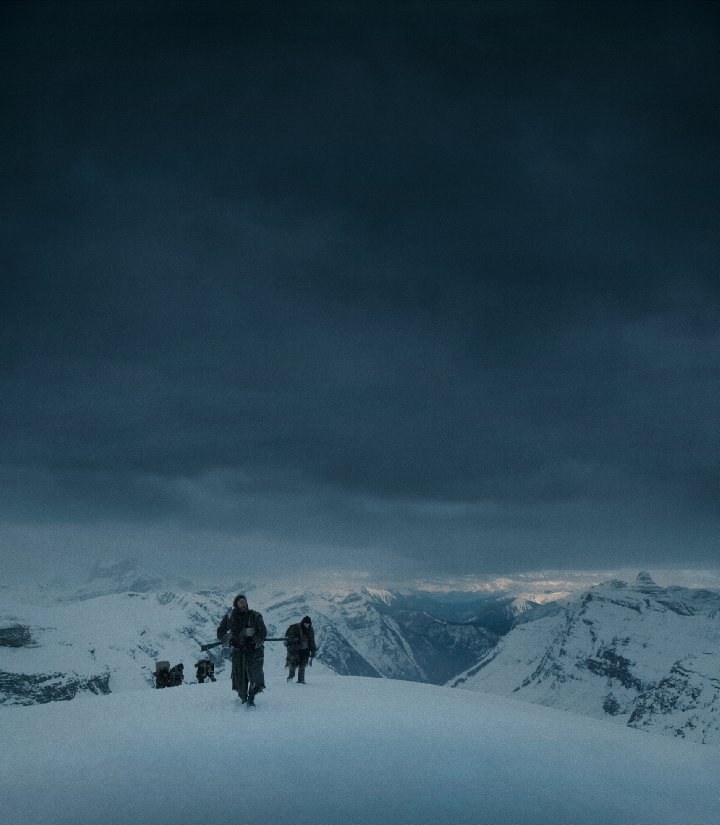
Glass is, in other words, pretty insufferable, and you understand why Fitzgerald loathes the guy even though the more refined Andrew Henry (Domhnall Gleeson), the man in charge, respects him utterly. The wounds Glass receives in the grizzly attack — another wrenching, showy long take — bring him to a near-animal state: DiCaprio drags himself across the snow, rasping and groaning in pain, cauterizing his own wound with gunpowder.
It's visceral and gross, like so much of the action that follows, but it's also so grubbily, severely macho that it trembles right on the verge of funny. That's hardly the only time The Revenant's dourness is awfully close to humor — there's a scene in which Glass and another man eat raw buffalo in the snow while maintaining heated eye contact, and another in which he cozily tucks the edges of an eviscerated horse around his head like a hoodie. DiCaprio's performance is more an act of athleticism than it is one of any nuance. Glass is a mass of feral reactions, crazed eyes staring out of a dirt-smeared face.
The Revenant is so prettily constructed that it's painful to admit how ridiculous it actually is, and how empty it feels to watch a gruff, pseudo-mystical Western consisting of two actors method-style grunting their way toward an inevitable showdown in the snow. Like In the Heart of the Sea, The Revenant is set in a realm that's entirely female-free, save for Glass's ghost wife and an Arikara woman who's kidnapped and raped. Movies don't have to have a gender balance to be good, but The Revenant's monotonous manliness is part of its weakness — it isn't about anything other than the savage, violent world it's so convinced has innate weight to it. Its revenge plot brings no satisfaction and its observations about the indifference of nature are prosaic. It's a movie about survival in which survival seems as meaningless as everything else in its universe.
Though The Revenant is a more ambitious film than In the Heart of the Sea, in the end, the two survival dramas do the same thing: They treat struggle as synonymous with substance, even though one definitely doesn't guarantee the other.
